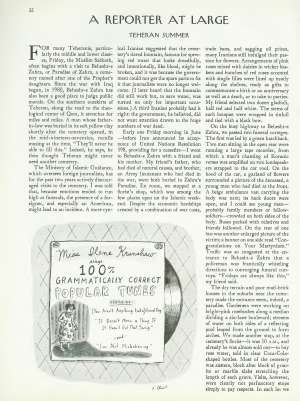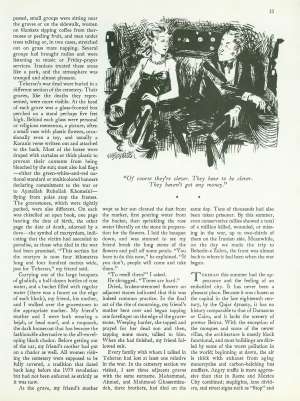The New Yorker, September 5, 1988 P. 32
REPORTER AT LARGE about Iran. In July Iran agreed to unconditionally accept UN Resolution 598 for a ceasefire ending the war with Iraq. This spring there were some anti-war demonstrations and clerics were making pilgrimages to tell Khomeini, bluntly, that the war was sapping public morale. This was a reversal in Iranian thinking as until this spring the war was seen as more than a territorial dispute: it was a Holy Muslim war & a war on behalf of all the oppressed in the Third World; nationalism was another factor. Tells how the war that had sustained the revolution slowly began to destroy it. Iran was losing militarily, too. Today in Iran economic problems abound. There is a food shortage, among other things. Tells what a pivotal figure Khomeini has been to the Islamic Republic. In 1982 he intervened to end the first years of terror & excesses. The prospect of the Islamic Republic without him has made even those who have opposed the regime or found it distasteful somewhat uneasy. Irainians fear the future as the nation is deeply divided & has reached a juncture as tumultuous as the Islamic Republic's early days. In Jan. 1988 Khomeini issued a "fatwa" or religious edict on the power of the Islamic state. He ruled that the state was superior to Islam which was a revolutionary concept. Tells about the powerful speaker of parliament, Ali Akbar Hashemi Rafsanjani, who might make a strong future head of state. Writer was told that Iran wants U.S. recognition of their revolution, not intervention. This summer, Iran began to open its doors again to controversial Western nations.


